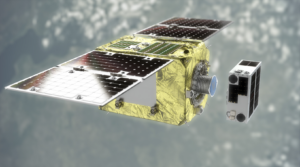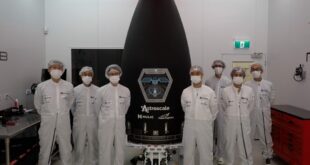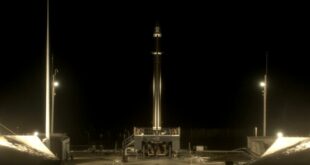
Edinburgh, 1 February 2022. – Astroscale recently announced that they have begun their End-of-Life Services by Astroscale-demonstration (ELSA-d) debris removal mission’s next phase but after detecting anomalous spacecraft conditions, the team decided to abort the mission.
During the autonomous capture demonstration in orbit, the ELSA-d servicer spacecraft successfully released its client spacecraft. It began autonomous relative navigation, maintaining a constant and safe distance from the client over multiple orbits, Astroscale said.
For the safety of the mission, the team had to stand down though, as they detected an anomaly. To proceed with the capture attempt, this anomaly will have to be resolved first. Astroscale has delayed its space debris capture attempts until further notice.
Both spacecraft are operational and safely separated as per the company. Astroscale is liaising with regulators, space surveillance networks, and their orbital neighbours and promised an update as soon as possible. The firm is determined to continue with the mission in the near future.





